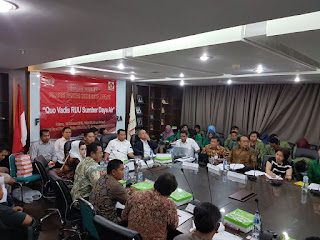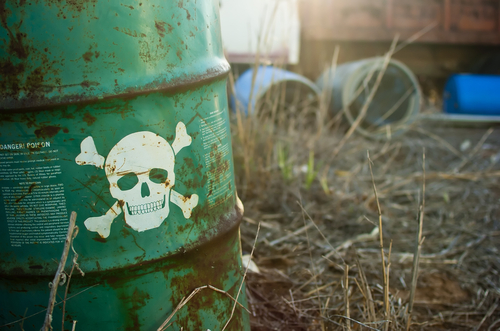CRPG's research report on Persistent Organic Pollutants and the Phasing out of Polychlorinated Biphenyls (PCB) in Indonesia is available for download. Click here for the
project page.
The report consisted of Main Report with 6 annexes.
Report
The report consisted of Main Report with 6 annexes:
Table of contents (
Main Report):
1. International Conventions on PCB and its implementation in Indonesia
1.1. Basel Convention
1.2. Stockholm Convention
1.3. Rotterdam Convention
1.4. Ratification of the Basel, Rotterdam and Stockholm Conventions
1.5. Existing Regulations Relevant to Persistent Organic Pollutants
2. PCB Regulation in Other Countries
2.1. United States of America
2.2. Philippines
2.3. South Africa
2.4. European Union
2.5. England and Wales
3. Definitions and concepts in the management of hazardous chemicals
3.1. Chemicals vs Articles
3.2. Chemical Substances vs Chemical Mixture
3.3. Hazardous Substances and Substances of Very High Concern
3.4. Substance, Mixture and Articles under Indonesian Regulations
3.5. Globally Harmonised System in Indonesia
3.6. Chemical Substances under the Indonesian Chemical Bill
3.7. Waste
4. Regulatory Framework for PCB Life Cycle in Indonesia
4.1. Import, Export and Production
4.2. PCBs Import to Indonesia
4.3. Distribution of POPs in Indonesia
4.4. Registration
4.5. Packaging and Labelling of B3
4.6. Packaging and Labelling of B3 Wastes
4.7. B3 Waste Storage
4.8. B3 Waste Collection
4.9. Transportation
4.10. B3 Waste Utilisation
4.11. B3 Waste Treatment/Processing (Pengolahan Limbah B3)
4.12. B3 Waste Hoarding (Penimbunan Limbah B3)
4.13. Accident and Emergency Response
4.14. Occupational Health and Safety
5. Environmental Standards and Product Standards
5.1. Air Quality
5.2. Water Quality
5.3. Limit Values for PCBs in Food and Human Bodies
5.4. Standards to Determine Land Contamination
5.5. Product Standardisation
6. Institutional Arrangements
6.1. Specific Institutions
6.2. Ministry of Environment and Forestry
6.3. Local Government
7. Gap Analysis and Recommendations
8. Annexes
Annexes:
Annex 1 Recommendation for Regulatory Reform
Annex 2 Existing Regulatory Framework
Annex 3 PCB Official Guidance
Annex 4 PCB Code of Practice (by Dr. Carlo Lupi)
Annex 5 Analysis of Task, Role and Function of MoEF Units in PCB Phasing Out
Annex 6 Recommendation for the Regulation of Economic Incentives
Download the The Main Report and its Annexes
here (6MB, 231 pages).
Download only The Main Report
here.
Related report
Chemical Management in Indonesia: Present and Future (Analysis on the Draft of Chemical Management Law and the Draft Revision of Government Regulation No.74/2001 on the Hazardous and Toxic Substances) by Dyah Paramita is available for download
here.












Recent Comments